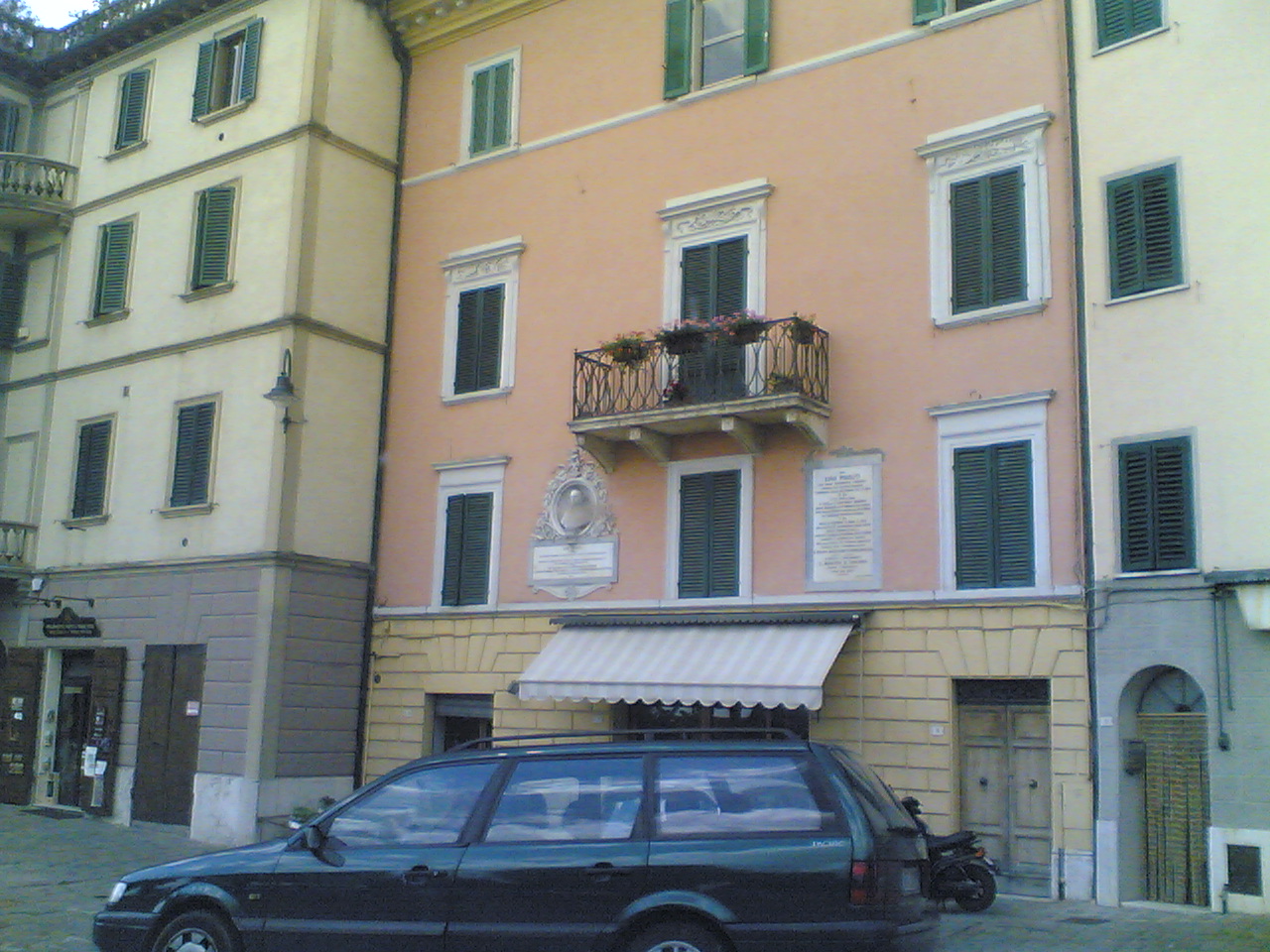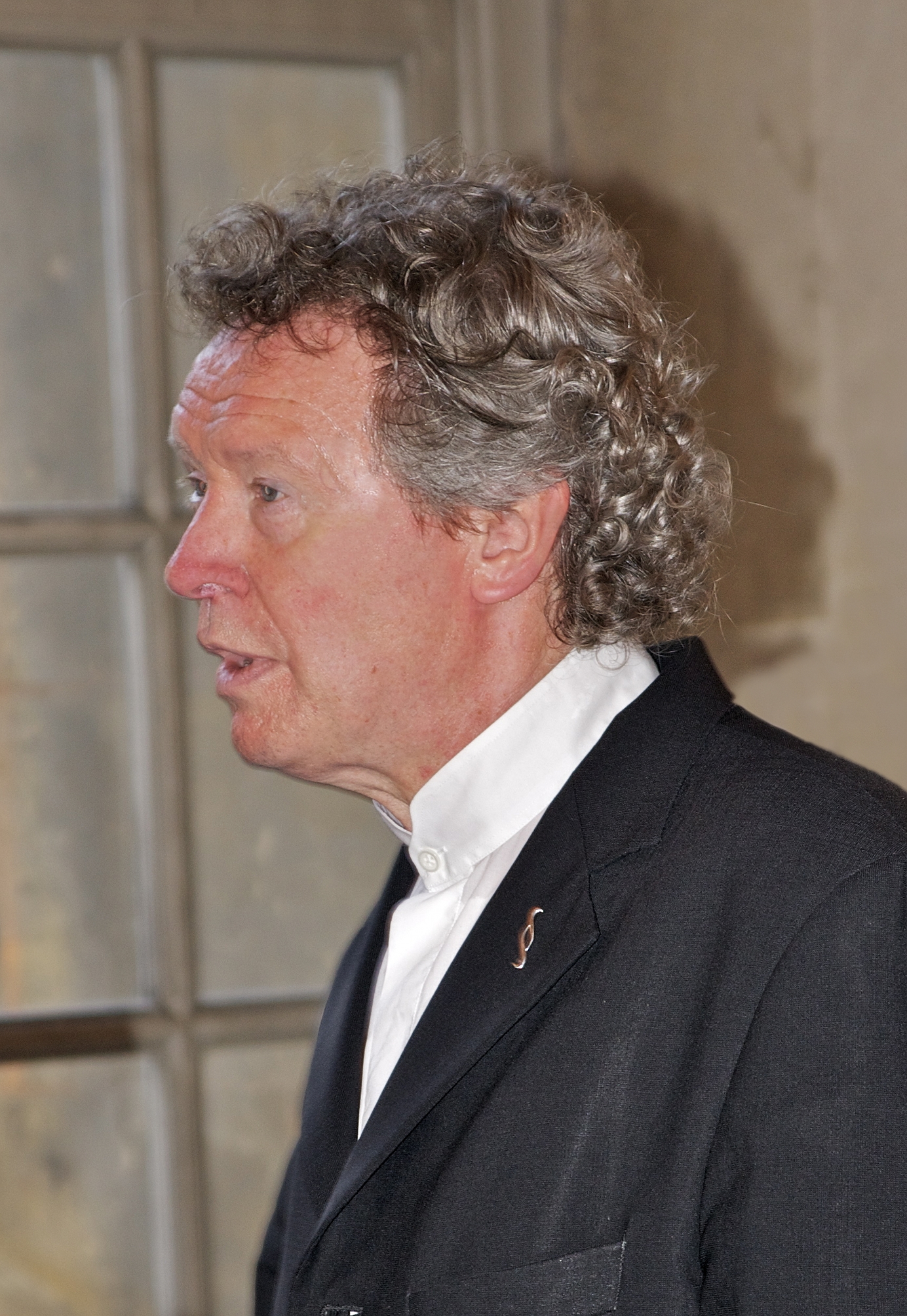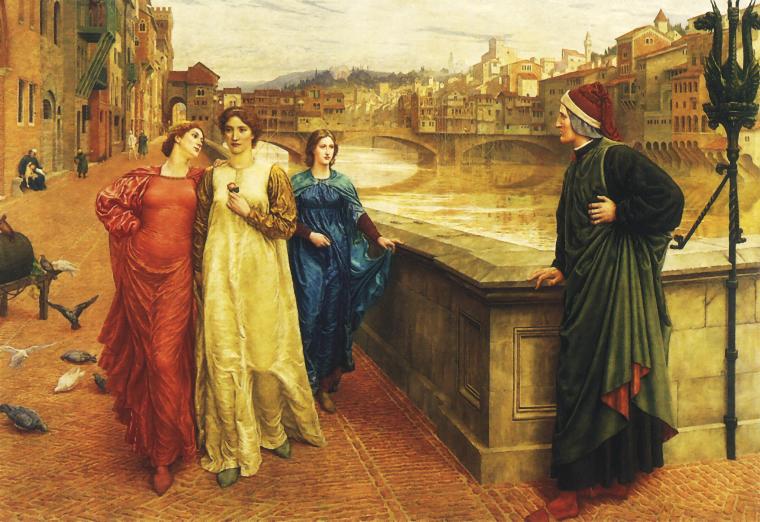|
Ciro Pinsuti
Ciro Pinsuti (9 May 1829 – 10 March 1888) was an England, Anglo-Italy, Italian composer. Educated in music for a career as a pianist, he studied composition under Gioacchino Rossini, Rossini. From 1848 he made his home in England, where he became a teacher of singing, and in 1856 he was made a professor at the Royal Academy of Music, Academy of Music in London. Pinsuti composed numerous songs and part-songs which achieved popularity in the Victorian era. He also composed three operas, which were produced in Italy, but which are rarely performed today. He is most remembered for his popular parlour songs such as "I Fear no Foe" and the "Bedouin love song". Life He was born in Sinalunga near Siena, Italy, the son of Maddalena Formichi and G. Battista Pinsuti, who was the music teacher of the local orchestra. After studying music with a friend of his father, he made his first public appearance on 7 March 1840 at the age of ten in the Civic Theatre of Perugia playing the violin i ... [...More Info...] [...Related Items...] OR: [Wikipedia] [Google] [Baidu] |
Sketch By Phil May
Sketch or Sketches may refer to: * Sketch (drawing), a rapidly executed freehand drawing that is not usually intended as a finished work Arts, entertainment and media * Sketch comedy, a series of short scenes or vignettes called sketches Film and television * ''Sketch'' (2007 film), a Malayalam film * ''Sketch'' (2018 film), a Tamil film * ''Sketch'' (2024 film), an American comedy horror film * ''Sketch'' (TV series), a 2018 South Korean series * "Sketch", a 2008 episode of ''Skins'' ** Sketch (''Skins'' character) * Sketch with Kevin McDonald, a 2006 CBC television special Literature * Sketch story, or sketch, a very short piece of writing * '' Daily Sketch'', a British newspaper 1909–1971 * '' The Sketch'', a British illustrated weekly journal 1893–1959 Music * Sketch (music), an informal document prepared by a composer to assist in composition * The Sketches, a Pakistani Sufi folk rock band * ''Sketch'' (Ex Norwegian album), 2011 * ''Sketch'' (Lilas I ... [...More Info...] [...Related Items...] OR: [Wikipedia] [Google] [Baidu] |
1888 Deaths
Events January * January 3 – The great telescope (with an objective lens of diameter) at Lick Observatory in California is first used. * January 12 – The Schoolhouse Blizzard hits Dakota Territory and the states of Montana, Minnesota, Nebraska, Kansas and Texas, leaving 235 dead, many of them children on their way home from school. * January 13 – The National Geographic Society is founded in Washington, D.C. * January 19 – The Battle of the Grapevine Creek, the last major conflict of the Hatfield–McCoy feud in the Southeastern United States. * January 21 – The Amateur Athletic Union is founded by William Buckingham Curtis in the United States. * January 26 – The Lawn Tennis Association is founded in England. February * February 27 – In West Orange, New Jersey, Thomas Edison meets with Eadweard Muybridge, who proposes a scheme for sound film. March * March 8 – The Agriculture College of Utah (later Utah State University) i ... [...More Info...] [...Related Items...] OR: [Wikipedia] [Google] [Baidu] |
1829 Births
Events January–March * January 19 – Ernst August Friedrich Klingemann, August Klingemann's adaptation of Johann Wolfgang von Goethe's ''Goethe's Faust, Faust'' premieres in Braunschweig. * February 27 – Battle of Tarqui: Troops of Gran Colombia and Peru battle to a draw. * March 11 – German composer Felix Mendelssohn conducts the first performance of Johann Sebastian Bach's ''St Matthew Passion'' since the latter's death in 1750, in Berlin; the success of this performance sparks a revival of interest in Bach. * March 21 – The bloodless Wellington–Winchilsea duel takes place at Battersea near London * March 22 – Greece receives autonomy from the Ottoman Empire in the London Protocol (1829), London Protocol, signed by Russian Empire, Russia, France and Britain, effectively ending the Greek War of Independence. Greece continues to seek full independence through diplomatic negotiations with the three Great Powers. * March 31 – Pope Pius VIII succeeds Pope Leo ... [...More Info...] [...Related Items...] OR: [Wikipedia] [Google] [Baidu] |
The Sixteen
The Sixteen (previously known as the Symphony of Harmony and Invention) are a British choir and period instrument orchestra. Founded by Harry Christophers, they started as an unnamed group of sixteen friends in 1977, giving their first billed concert in 1979. The group performs early English polyphony, works of the Renaissance, Baroque and early Classical music, and a diversity of 20th- and 21st-century music. The Sixteen are "The Voices of Classic FM", TV media partner with Sky Arts and associate artists of the Southbank Centre in London and Bridgewater Hall in Manchester. The group promotes an annual series at the Queen Elizabeth Hall as well as the Choral Pilgrimage, a tour of Britain's finest cathedrals: bringing music back to the buildings for which it was written. The BBC television series ''Sacred Music'' was produced in collaboration with the Sixteen; between 2008 and 2015, two full series aired along with numerous specials. The Sixteen are a registered chari ... [...More Info...] [...Related Items...] OR: [Wikipedia] [Google] [Baidu] |
Magda Olivero
Magda Olivero (née Maria Maddalena Olivero) (25 March 1910 – 8 September 2014), was an Italian operatic soprano. Her career started in 1932 when she was 22, and spanned five decades, establishing her "as an important link between the era of the verismo composers and the modern opera stage". She has been regarded as "one of the greatest singers of the twentieth century". Life and career Born as Maria Maddalena Olivero in Saluzzo, Italy, she followed complete musical studies (piano, harmony and composition), graduating in piano at the Giuseppe Verdi Conservatory in Turin. She later studied singing outside the Conservatory and made her singing debut in 1932 on radio performing Nino Cattozzo's (1886–1961) oratorio, ''I Misteri Dolorosi''. Landini, Giancarlo Olivero, Maria Maddalena, detta Magda', in ''Dizionario Biografico degli Italiani (2017)''. Olivero performed widely and increasingly successfully until 1941, when she married the industrialist Aldo Busch and retired from th ... [...More Info...] [...Related Items...] OR: [Wikipedia] [Google] [Baidu] |
Jules Levy (musician)
Jules Levy (April 24, 1838 – November 28, 1903) was a cornetist, teacher and composer. Biography Born in London, England, he reportedly began his study of the cornet with only its mouthpiece; his family could not afford the instrument itself. After migrating to the United States, he began a significant musical career as a cornet soloist and was billed as "The World's Greatest Cornetist". He was widely regarded as a foremost player, although the claim of world's greatest has some challengers. He was a member of Patrick Gilmore's band for several years, performing with them at the Centennial Exposition in Philadelphia, Pennsylvania, Philadelphia in 1876. He was also a tester and promoter for C.G. Conn, a manufacturer of musical instruments. Levy performed many pieces, among the most famous being "Una Voce" by Rossini, "Carnival of Venice (song), Carnival of Venice", "Grand Russian Fantasia" and, his favorite, "Whirlwind Polka". He was arguably the first cornetist to be recorded, ... [...More Info...] [...Related Items...] OR: [Wikipedia] [Google] [Baidu] |
Clarence Whitehill
Clarence Eugene Whitehill (November 5, 1871 - December 19, 1932) was a leading American bass-baritone who sang at the Metropolitan Opera from 1915 to 1932. He sang on both sides of the Atlantic and is remembered for his association with the music dramas of Richard Wagner, and for his recordings of well-known music hall ballads such as "I'll take you home again, Kathleen". Biography He was born on November 5, 1871, in Marengo, Iowa. Whitehill studied in Chicago with L. A. Phelps, and then in Paris with Giraudet and Giovanni Sbriglia. In 1898, he made his stage debut at La Monnaie in Brussels, as Capulet in '' Roméo et Juliette''. He sang Nilakhanta at the Opéra-Comique the next year, becoming the first ever American singer to perform in that theatre. Whitehill travelled to Frankfurt, Germany, to study with Julius Stockhausen. He appeared on stage in several German cities, while studying the Wagnerian baritone and bass-baritone roles. In 1904, he debuted at the Bayreuth ... [...More Info...] [...Related Items...] OR: [Wikipedia] [Google] [Baidu] |
Peter Dawson (bass-baritone)
Peter Smith Dawson (31 January 188227 September 1961) was an Australian bass-baritone and songwriter in the 1920s and 1930s, when he was possibly the most popular singer of that era. He said that at the time the Phonograph, gramophone was "an instrument of torture", excruciating for the recording artist, who needed "lungs of leather" to make an impression on the wax cylinders, which captured nothing but the very loudest noises. However, Dawson made his first recording in 1904, and continued to release songs for EMI and His Master's Voice (British record label), His Master's Voice (HMV) until 1958. In this time he performed classical tunes such as Pyotr Ilyich Tchaikovsky , Tchaikovsky's "Don Juan Serenade" and popular songs like "Waltzing Matilda". He was the subject of a biography, ''Peter Dawson: The World's Most Popular Baritone'' written by Peter Burgis and Russell Smith. That biography estimates Dawson had in excess of 1500 recordings issued during his career. In 1984, ... [...More Info...] [...Related Items...] OR: [Wikipedia] [Google] [Baidu] |
La Vita Nuova
''La Vita Nuova'' (; modern Italian for "The New Life") or ''Vita Nova'' (Latin and medieval Italian title ) is a text by Dante Alighieri published in 1294. It is an expression of the medieval genre of courtly love in a prosimetrum style, a combination of both prose and verse. History and context Referred to by Dante as his ''libello'', or "little book," ''La Vita Nuova'' is the first of two collections of verse written by Dante in his life. The collection is a '' prosimetrum'', a piece containing both verse and prose, in the vein of Boethius' '' Consolation of Philosophy''. Dante used each ''prosimetrum'' as a means for combining poems written over periods of roughly ten years—''La Vita Nuova'' contains his works from before 1283 to roughly 1293. The collection and its style fit in with the movement called '' dolce stil novo''. The prose creates the illusion of narrative continuity between the poems; it is Dante's way of reconstructing himself and his art in terms of his ... [...More Info...] [...Related Items...] OR: [Wikipedia] [Google] [Baidu] |
Carlo D'Ormeville
Carlo is a given name. It is an Italian form of Charles. It can refer to: *Carlo (name) *Monte Carlo *Carlingford, New South Wales, a suburb in north-west Sydney, New South Wales, Australia *A satirical song written by Dafydd Iwan about Prince Charles. *A former member of Dion and the Belmonts best known for his 1964 song, Ring A Ling. *Carlo (submachine gun), an improvised West Bank gun. * Carlo, a fictional character from Animal Crossing: Pocket Camp * It can be confused with Carlos * Carlo means “man” (from Germanic “karal”), “free man” (from Middle Low German “kerle”) and “warrior”, “army” (from Germanic “hari”). See also *Carl (name) *Carle (other) *Carlos (given name) Carlos is a masculine given name, and is the Maltese, Portuguese and Spanish variant of the English name ''Charles'', from the North Germanic '' Carl''. Royalty *Carlos I of Portugal (1863–1908), second to last King of Portugal *Charles V, ... {{disambig Italian ... [...More Info...] [...Related Items...] OR: [Wikipedia] [Google] [Baidu] |
Teatro Alla Scala
La Scala (, , ; officially , ) is a historic opera house in Milan, Italy. The theatre was inaugurated on 3 August 1778 and was originally known as (, which previously was a church). The premiere performance was Antonio Salieri's ''Europa riconosciuta''. Most of Italy's greatest operatic artists, and many of the finest singers from around the world, have appeared at La Scala. The theatre is regarded as being one of the leading opera and ballet theatres globally. It is home to the La Scala Theatre Chorus, La Scala Theatre Ballet, La Scala Theatre Orchestra, and the Filarmonica della Scala orchestra. The theatre also has an associate school, known as the La Scala Theatre Academy (), which offers professional training in music, dance, stagecraft, and stage management. Overview La Scala's season opens on 7 December, Saint Ambrose's Day, the feast day of Milan's patron saint. All performances must end before midnight and long operas start earlier in the evening when necessary. ... [...More Info...] [...Related Items...] OR: [Wikipedia] [Google] [Baidu] |







